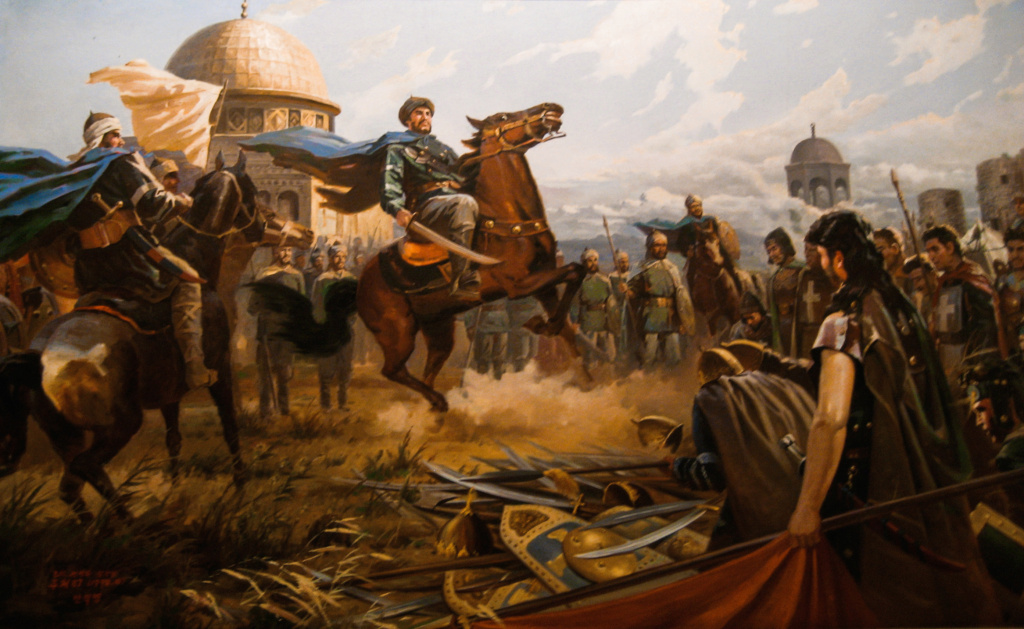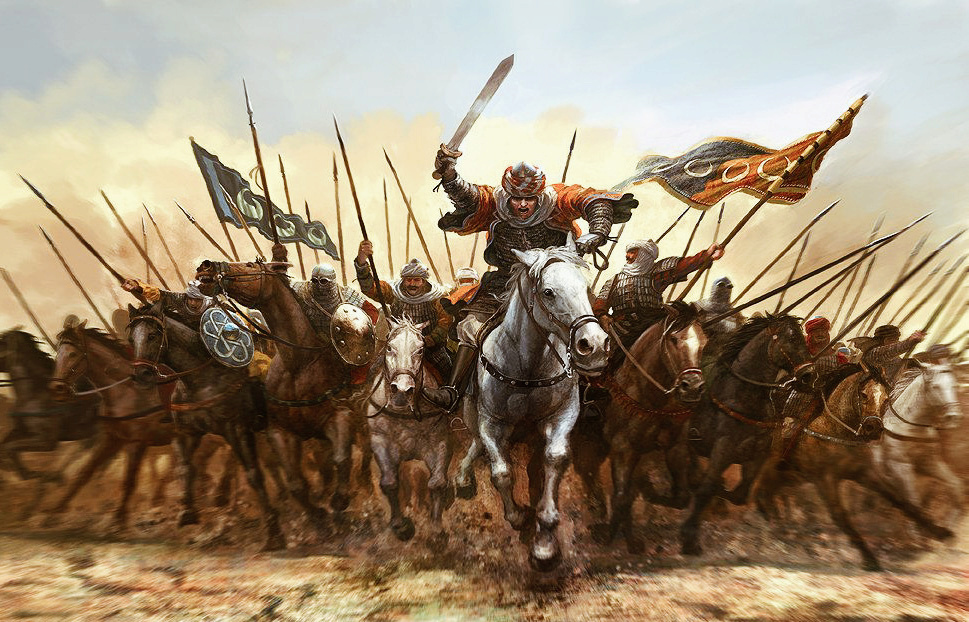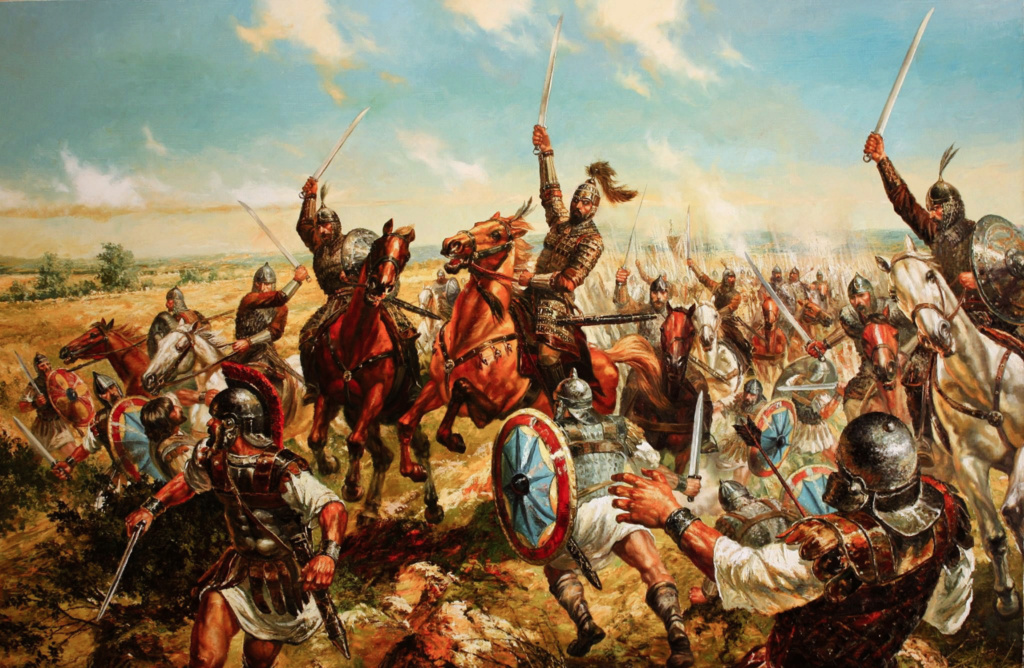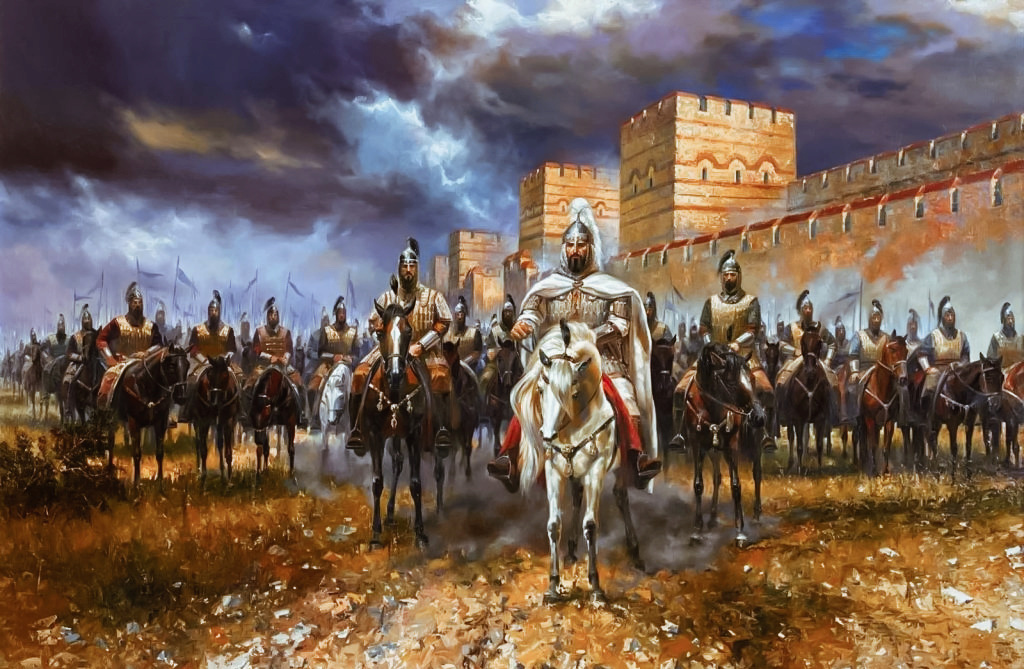? The Arab “invasions” in the narratives of the vanquished: a Jewish conspiracy

The Byzantines portrayed the Jews as an internal enemy, who would be expected to do the unthinkable in order to undermine the sacred foundations of the Byzantine state...
“The Arab Invasions in the Narratives of the Vanquished,” and we continue in it the Christians accusing the Jews of being behind the “Arab Invasions.”
The Arabs, as we have seen in the previous sections, were just a bunch of goat and camel herders in the eyes of their neighbours. It would not have occurred to them, who are the two great empires, that the Arabs would be so bold as to confront them militarily and religiously.
?permission
So there is a party that prompted the Arabs to invade their neighboring countries in the Arabian Peninsula, and provided them with a religious-ideological basis for doing so!
In short, this was the conclusion of most of the newsmen, historians, politicians, and clerics in the regions that were subjected to the “Arab invasions.”
As for the accused who incited the Arabs to invade and the accompanying abuse of religious symbols, it can only be a group that has precedents in rebellion and allegations that contradict the prevailing constants, especially in the Byzantine Empire.

In this case, the first candidate to whom such characteristics apply is the Jews; eternal enemy of Christianity.
This accusation against the Jews of inciting the Arabs to “invasions” was based on/and helped to reinforce, the disturbances witnessed in the cities of the East, such as Antioch and Alexandria, from mutual massacres between Christians and Jews, and their support for the Persian invasion in 614 AD and their applause for the storming of Jerusalem…
Rather… and aiding the Jews to the invaders, in what is like erasing the traces of the Byzantine rule in terms of destroying churches and killing Christians, which amounts to the limits of public and open rebellion against Constantinople (the capital of the empire).
In response to this, the Byzantines portrayed the Jews as an internal enemy, who would be expected to do the unpredictable in order to undermine the sacred foundations of the Byzantine state... It seems that they, that is, the Byzantines, had forgotten their persecution of the "enemy" and the imposition of Christianization on it.
The truth is that Umar ibn al-Khattab, the caliph during whose reign the “invasions” actually began, took on a “salvation” face in the eyes of the Jews, after they were fed up with the burdens of Byzantine persecutions and pressures.
Omar's interest in building Al-Aqsa Mosque, for the Jews, was evidence of his endeavor to rebuild the Temple... Given the great revival implications of the rebuilding of the Temple for the Jews, it is likely that it moved some of their political hopes.

Incidentally, al-Tabari’s history states that the first person to call Umar “al-Faruq” was a Jewish man from Damascus. This title is a word of Armenian origin, the language spoken by the Jews of Syria and Palestine at the time, and means “the savior.”
“Borogo” in the Torah, which was written in the Syriac language, had its meaning as well… But after that the “biblical” source of the word was absent, and was replaced by the Arabic interpretation, which says that what is meant by “Al-Farouk” is a man who differentiates between good and evil.
Certainly, what al-Tabari and other Arab historians said about the early days of the Arabs' entry into Palestine did not receive sufficient attention from contemporary researchers, because of their justified influence, perhaps, on the conditions of Arab-Israeli politics and conflict these days...
This conflict makes the Judeo-Islamic religious overlap a forbidden land, despite its great knowledge potential.
In general, the Arab and Jewish literature does not refer to how the relationship between Jews and Arabs arose, nor how the mutual suspicions that later emerged between the two sides began, but although these are neighbors in several regions of the peninsula, this is not enough to turn the Arabs into executors of the will of the Jews according to What Christian sources say.
Speaking of doubts, the Jews, despite what they saw in the “Arab invasions” of salvation, felt frustrated after the Arabs decided to prevent them from building the Temple, as they thought that the Temple Mount would remain in their possession for religious purposes.

From here, the Jews began to consider that the Arabs represent the “savage man,” the “spear-wielder and the helmet-wearer,” who oppresses them and imposes taxes on them, just like the Byzantines who preceded him.
However, it appeared later that the process of reformulating the history of Arab-Islamic-Jewish relations had added a measure of positivity to the relations of the two sides at that time.
The modern Jewish historian, Israel Wolfensohn, says in “History of the Jews in the Land of Arabia”: “The Jews in most of the cities of Iraq used to go out to receive the Muslim armies with hospitality and honor because they used to favor them over others as they saw in them a people who believed in the God of Moses and Abraham. And these bonds became stronger with the passage of time until the Jews entered the Muslim armies to fight with them in the provinces of Andalusia.”
And he continues: “It should be borne in mind that the small loss suffered by the Jews of the Hijaz country is small compared to the benefit that the Jewish element gained from the emergence of Islam.
There is certainly an explanation for what Wolfensohn says, based mainly on the common hostility to the Byzantines, not to mention the common Abrahamic heritage.
Wolfensohn adds that "the contact of the Jews with the Muslims in the Islamic regions was the cause of a great intellectual renaissance among the Jews, the effects of which remained in the history of Arabic and Hebrew literature for a long time...".
Today, two do not differ in the greatness of the influence of Islam on Judaism with the emergence of scholars such as Abu Yusuf Yaqoub Al-Qarqsani and Yusuf bin Saeed Al-Fayoumi, before it reached its climax with Musa bin Maimon in the twelfth century, when he touched Islamic monotheism by contrasting it with the “pagan solutionist” orientation in Judaism. .

However, despite this religious acculturation that reached its climax in Andalusia, many Muslims of our days still resent when they say that Islam itself was influenced by Judaism, not only at the level of the founding texts, but also at the level of what is known as “Israeli women” that are full of many From Islamic heritage books.
Source: websites

